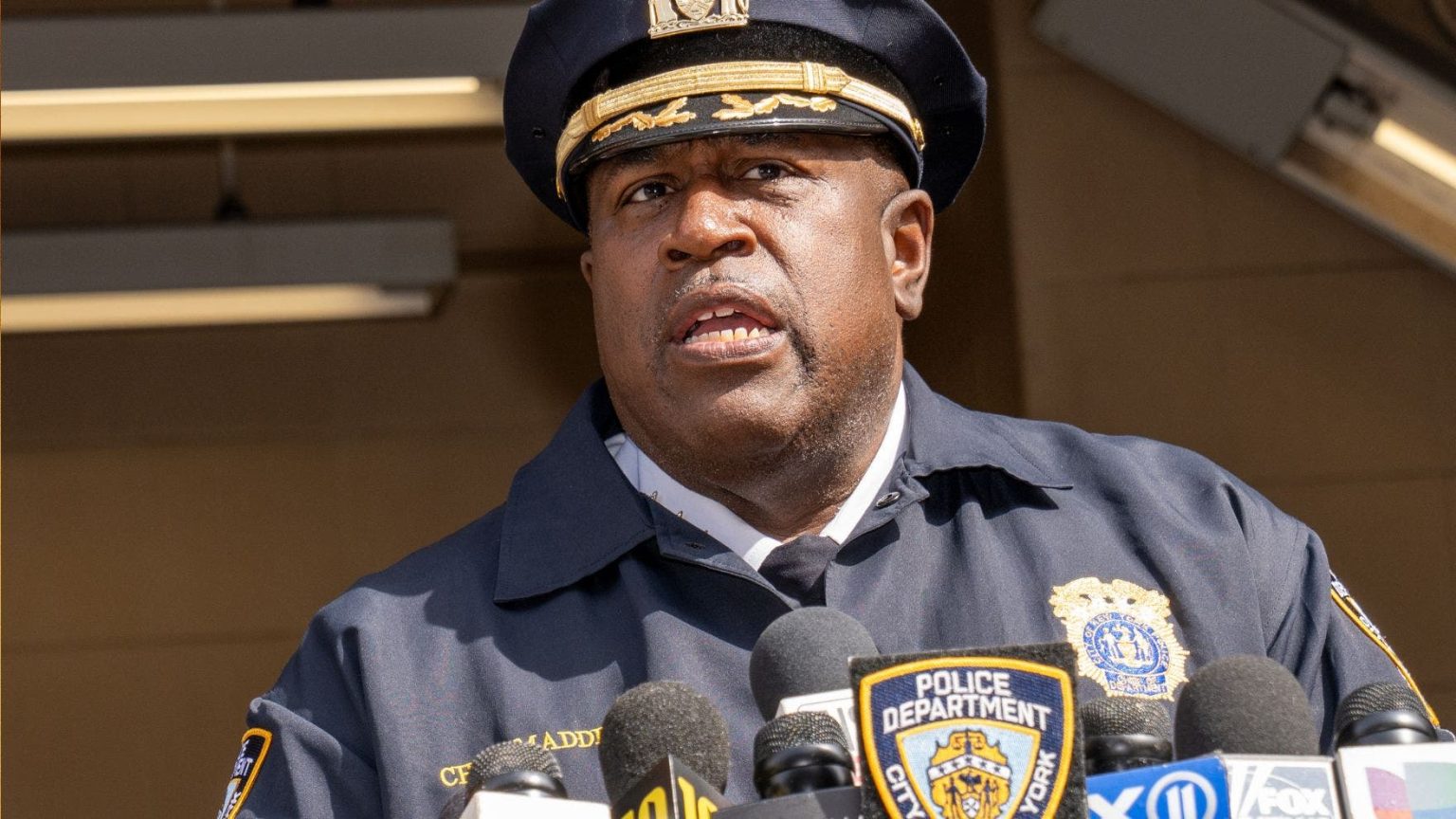The abrupt resignation of Jeffrey Maddrey, the NYPD’s Chief of Department, has sent shockwaves through the New York Police Department and the Adams administration. Maddrey, the highest-ranking uniformed officer, stepped down amid explosive allegations of sexual harassment and quid pro quo misconduct. The resignation came mere hours before Lieutenant Quathisha Epps, an administrative staff member in Maddrey’s office, lodged a formal complaint with the state Division of Human Rights, detailing a pattern of sexual coercion and exploitation. The complaint paints a disturbing picture of Maddrey leveraging his position of power to solicit sexual favors from subordinates in exchange for career advancement, specifically overtime opportunities. Epps’s allegations extend beyond her own experiences, claiming Maddrey pressured her to facilitate sexual encounters between another female officer and himself, further solidifying the accusations of a pervasive and abusive environment within the department.
Epps’s complaint further alleges Maddrey, a married man, engaged in an ongoing inappropriate sexual relationship with a female detective, creating an environment of discomfort and impropriety for Epps. This alleged affair, coupled with the alleged coercion of Epps and another female officer, underscores the severity and scope of the misconduct outlined in the complaint. The complaint also details how Maddrey purportedly manipulated Epps’s overtime records after she began rejecting his advances. This alleged retaliation, manifested through a criminal and internal investigation against Epps, paints a picture of a powerful figure using his authority to silence and punish those who resisted his advances. The timing of the investigation, immediately following Epps’s refusal to comply with Maddrey’s demands, raises serious questions about the motivations behind the investigation and further strengthens Epps’s claims of retaliatory action.
The unfolding scandal comes on the heels of Epps’s recent notoriety, sparked by reports of her substantial earnings, including significant overtime pay, in her administrative role within Maddrey’s office. While the high compensation drew public scrutiny, Epps’s complaint argues the subsequent investigation into her overtime was a direct consequence of her rejection of Maddrey’s advances. This claim adds another layer of complexity to the situation, suggesting the investigation was not about legitimate concerns over overtime abuse, but rather a retaliatory measure against Epps for resisting Maddrey’s alleged harassment. Epps claims a meeting with Maddrey earlier in the week, where she intended to resign from the force due to the negative publicity surrounding her overtime pay, culminated in yet another instance of Maddrey demanding sexual favors, to which she complied. Immediately following this incident, she filed for retirement.
The NYPD has responded by appointing John Chell as interim chief of department and Philip Rivera as interim chief of patrol. While the official statement avoided mentioning Maddrey’s resignation directly, the NYPD confirmed his departure to the media, citing an ongoing investigation into the allegations. The department has emphasized its commitment to thoroughly investigating all claims of sexual misconduct. Mayor Eric Adams’s office has expressed deep concern over the allegations, assuring the public of their cooperation with the NYPD’s investigation and a separate department-wide review to address potential abuse of power by high-ranking officers. This simultaneous internal review signals a broader effort to address potential systemic issues within the NYPD beyond the specific allegations against Maddrey.
Maddrey’s resignation and the ensuing investigation contribute to the ongoing turmoil within the NYPD and the Adams administration. The department recently witnessed the resignation of former Commissioner Edward Caban amidst a federal investigation into Mayor Adams, followed by the brief tenures of interim commissioners Tom Donlon and Jessica Tisch, with Tisch ultimately appointed permanently. The confluence of these events highlights a period of instability and scrutiny within the NYPD’s leadership. Mayor Adams himself is facing federal charges, including bribery and campaign finance violations, further complicating the landscape and raising concerns about the ethical conduct within his administration.
These allegations against Maddrey emerge amidst a backdrop of broader legal challenges facing the Adams administration. The federal indictment against Mayor Adams, centered on allegations of accepting illegal campaign contributions and gifts in exchange for political favors, casts a shadow over City Hall. Furthermore, the resignation and subsequent indictment of Ingrid Lewis-Martin, a close advisor to Mayor Adams, on bribery charges, further underscores the legal and ethical challenges confronting the administration. These interwoven scandals create a climate of uncertainty, impacting public trust and raising questions about the ethical standards within the NYPD and the mayor’s inner circle. The ongoing investigations and legal proceedings will undoubtedly continue to shape the narrative surrounding the Adams administration and the future of the NYPD.


